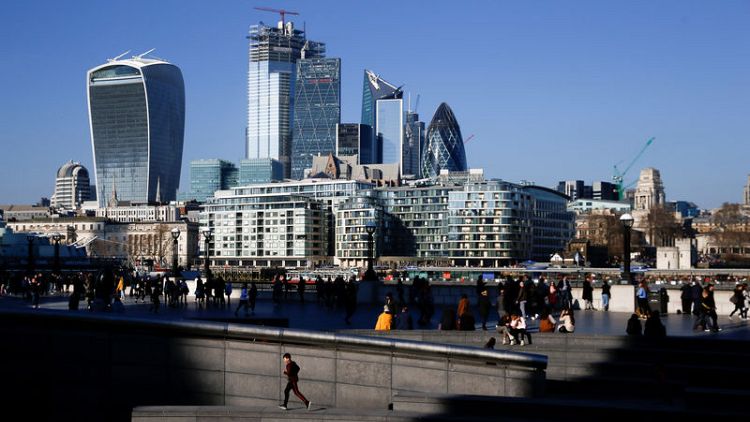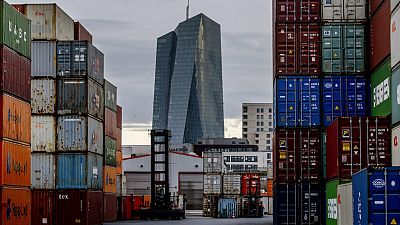By David Milliken
LONDON, April 3 (Reuters) - Britain's economy looks likely to shrink over the coming months after Brexit worries caused the dominant services sector to contract for the first time in nearly three years, a survey showed on Wednesday.
The closely watched IHS Markit/CIPS services Purchasing Managers' Index (PMI) tumbled to 48.9 in March from 51.3 in February, weaker than all forecasts in a Reuters poll of economists.
This index is now below 50 and in contractionary territory for the first time since July 2016, immediately after Britons voted to leave the European Union.
Britain's economy has been sluggish since the 2016 Brexit referendum and saw its weakest expansion in six years in 2018, despite having the lowest unemployment rate in over 40 years.
The slowdown in the global economy has also weighed on growth. But until now few surveys have pointed to an outright contraction in the world's fifth-largest economy.
Britain had been due to leave the EU on March 29 but parliament repeatedly opposed the Brexit deal Prime Minister Theresa May had negotiated with Brussels.
"There were widespread reports that domestic political uncertainty had constrained demand in March, with clients hoping for clarity about Brexit outcomes before committing to new projects," IHS Markit said.
Late on Tuesday, May said she would seek another Brexit delay to try to broker a deal with the opposition Labour Party leader, a last-ditch gambit to break an impasse over Britain's departure that enraged many in her party.
A broader PMI, including manufacturing and construction data released this week, also fell to its lowest since July 2016 and escaped outright contraction only because firms bought more raw materials to prepare for a potentially disorderly Brexit.
"A stalling of the economy in the first quarter will ... likely turn into a downturn in the second quarter unless demand revives suddenly, which given the recent escalation of Brexit uncertainty, seems highly improbable," IHS Markit said.
Unlike in 2016, when demand rebounded rapidly after the initial shock of the referendum result, British businesses have now reported falling orders for the past three months, the longest such run since the depths of a recession in 2009.
Last week the head of the British Chambers of Commerce said business was angry with politicians for "chasing rainbows" rather than accepting that some Brexit goals were unrealistic.
And in news likely to depress growth this month, carmakers BMW and Peugeot said May's delay to Brexit had come too late for them to cancel stoppages at their British factories, which they had planned because of fears of parts shortages post-Brexit.
(Reporting by David Milliken; Editing by Catherine Evans)



